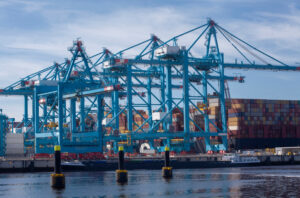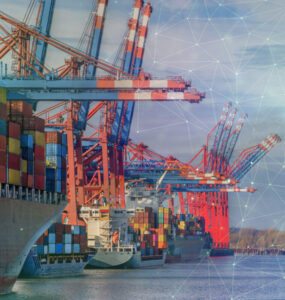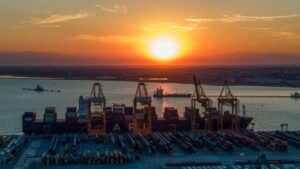The Port of Gothenburg has joined with Volvo Group, Scania and Stena Line to cut emissions at the largest port in Scandinavia.
In a statement, the Port said the participants will aim to cut emissions by 70% by 2030 by making all modes of transport more environmentally friendly.
Named the Tranzero Initiative, this project will focus on the one million truck transports and the 55,000 tonnes of carbon emissions generated from road transports to and from the Port each year.
The initiative also includes electrification of sea transport and the Port launched a new shoreside power system to cut the emissions when vessels call.
However, the Port said the transition to fossil-free transport to and from the port will need support from the Swedish government to help companies upgrade their fleets, for example designated grants, subsidised charging points and fossil-free fuels.
The participants will introduce a series of interlinked measures designed to accelerate the switch to fossil-free fuels.
This task has already started with a needs analysis and mapping of freight flows as part of the commitment to offering the market the right products and establishing a fossil-free fuel infrastructure to support this development.
The Port said it will produce the necessary infrastructure and access to fossil-free fuels for heavy vehicles, including electric power, HVO, biogas, and hydrogen gas.
Volvo and Scania will put commercial offerings in place for their heavy truck customers, ensuring that in time land transport becomes fossil free in accordance with the goals laid down by the port.
Stena Line will also have a key role to play by ensuring new fossil-free vessels are brought into service on the Gothenburg-Frederikshavn route by 2030, moving from vision to reality with its battery-powered vessel concept Stena Elektra.
Elvir Dzanic, Gothenburg Port Authority chief executive, said, “No single organisation or individual holds the key to meeting the challenges ahead of us.
“Collaboration is crucial and we are pleased to bring on board two of the world’s largest truck manufacturers and the world’s largest ferry company.
“With our collective expertise, breadth, and market presence we can make a real difference.
“We have had a long-standing exchange of views and ideas with the government regarding the challenges we are facing, and our goals are the same.
“The transport sector needs to move away from its reliance on fossil fuels and with the Tranzero Initiative we are taking a monumental step forward.”









